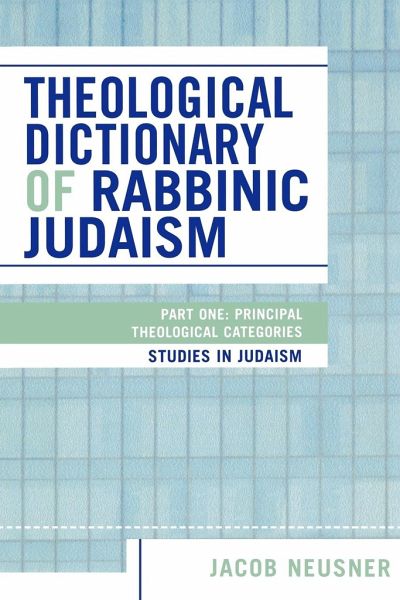
Theological Dictionary of Rabbinic Judaism
Part One: Principal Theological Categories
Versandkostenfrei!
Versandfertig in 1-2 Wochen
78,99 €
inkl. MwSt.

PAYBACK Punkte
39 °P sammeln!
Rabbinic theological language has made possible a vast range of discourse, on many subjects over long spans of recorded time and in diverse cultural settings. This three-part theological dictionary defines the principal theological usages of Rabbinic Judaism as set forth in the rabbinic canon of late antiquity, Mishnah, Talmuds, and Midrash-compilations.





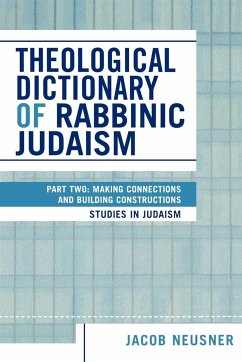

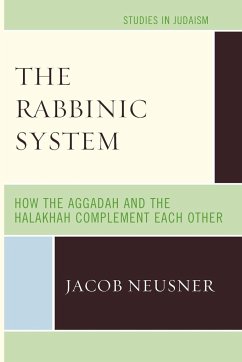

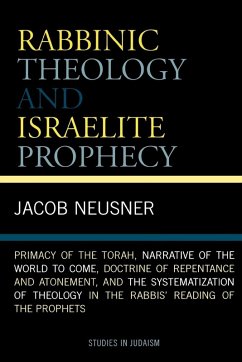

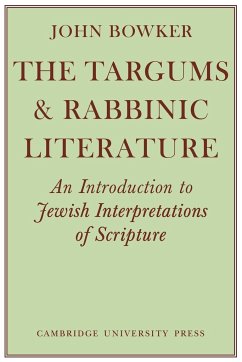
![Some Aspects of Rabbinic Theology [microform] Cover Some Aspects of Rabbinic Theology [microform]](https://bilder.buecher.de/produkte/65/65503/65503313n.jpg)

